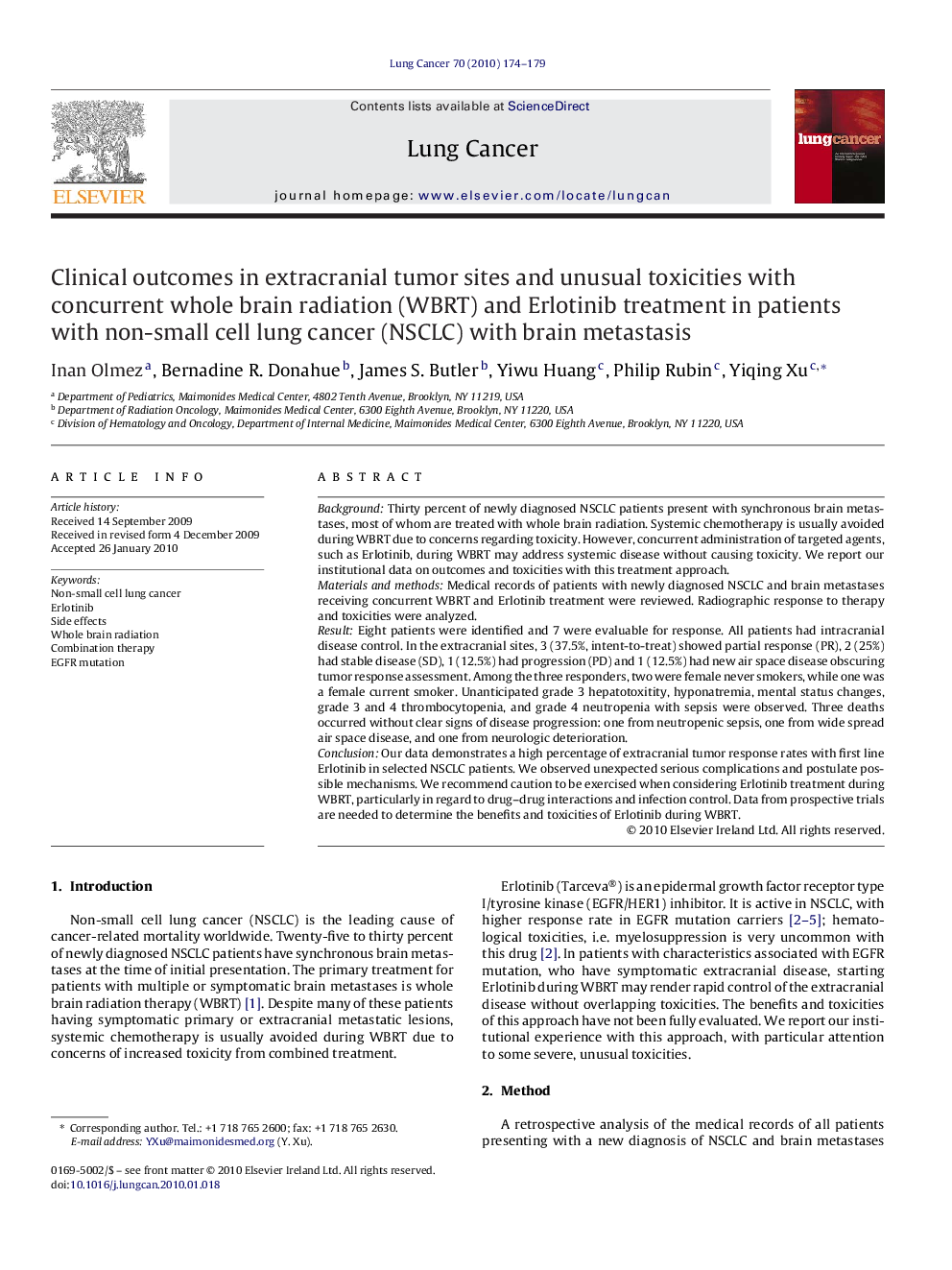| کد مقاله | کد نشریه | سال انتشار | مقاله انگلیسی | نسخه تمام متن |
|---|---|---|---|---|
| 2142330 | 1088314 | 2010 | 6 صفحه PDF | دانلود رایگان |

BackgroundThirty percent of newly diagnosed NSCLC patients present with synchronous brain metastases, most of whom are treated with whole brain radiation. Systemic chemotherapy is usually avoided during WBRT due to concerns regarding toxicity. However, concurrent administration of targeted agents, such as Erlotinib, during WBRT may address systemic disease without causing toxicity. We report our institutional data on outcomes and toxicities with this treatment approach.Materials and methodsMedical records of patients with newly diagnosed NSCLC and brain metastases receiving concurrent WBRT and Erlotinib treatment were reviewed. Radiographic response to therapy and toxicities were analyzed.ResultEight patients were identified and 7 were evaluable for response. All patients had intracranial disease control. In the extracranial sites, 3 (37.5%, intent-to-treat) showed partial response (PR), 2 (25%) had stable disease (SD), 1 (12.5%) had progression (PD) and 1 (12.5%) had new air space disease obscuring tumor response assessment. Among the three responders, two were female never smokers, while one was a female current smoker. Unanticipated grade 3 hepatotoxitity, hyponatremia, mental status changes, grade 3 and 4 thrombocytopenia, and grade 4 neutropenia with sepsis were observed. Three deaths occurred without clear signs of disease progression: one from neutropenic sepsis, one from wide spread air space disease, and one from neurologic deterioration.ConclusionOur data demonstrates a high percentage of extracranial tumor response rates with first line Erlotinib in selected NSCLC patients. We observed unexpected serious complications and postulate possible mechanisms. We recommend caution to be exercised when considering Erlotinib treatment during WBRT, particularly in regard to drug–drug interactions and infection control. Data from prospective trials are needed to determine the benefits and toxicities of Erlotinib during WBRT.
Journal: Lung Cancer - Volume 70, Issue 2, November 2010, Pages 174–179